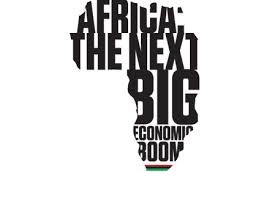By Abdullahi Mohamed
In the past few months, I have scrutinized the business environment in Somalia and why there is a shortage of entrepreneurs in the country. What is hindering them to join the business society and why are thousands of youths graduating from universities each year are willing to work in the public sector or to be employed in existing enterprises?

In the world of business, beginnings are never easy. However, Africa in general and Somalia, in particular, presents some unique challenges to new businesses due to the uniqueness of the emerging markets.
Africa is the most diverse region in the world and a continent of 54 countries with more than 130 major ethnic groups, over 3,000 languages, all the major faiths of the world, and many more traditional belief systems. A recent report on World Population Prospects: The 2015 Revision, Key Findings and Advance Tables of the United Nations anticipated that more than half of global population growth between now and 2050 is projected to occur in Africa.
Specifically, of the 2.4 billion people projected to add to the world’s population between 2015 and 2050, 1.3 billion will be added in Africa. In Somalia, according to United Nation population growth projections, 2.8% of population growth is projected to happen in Somalia on which the current number of 15 million will be exceeded by approximately 35 million in the year 2050.
Additionally, an article in Business Insider Projects found that after 2050, Africa is expected to be the only major region whose population is constantly growing. In 2010, Africa had a population of about 1.049 billion, and the continent is expected to shelter 39% of the world’s population in the year 2100.
The entrepreneurial drive in Africa is much greater than the rest of the world with new companies emerging at an exponential rate. In 2014, a report from the Global Entrepreneurship Monitor (GEM) showed that sub-Saharan Africa has the largest number of people involved in early-stage entrepreneurship (TEA) activity, with Zambia and Nigeria topping the rankings. These statistics demonstrate that the demand for labor and a steady source of income will also experience an exponential increase.
With these facts in mind, it is important – now more than ever – to study the entrepreneurship ecosystem across the continent to highlight and mitigate the challenges hindering growth and development. I have observed across the growing market and entrepreneurial ecosystem in the country and witnessed firsthand some of the major challenges that startups face in Somalia and in Africa in general.
Firstly start-up capital is the most obvious challenge. Most startups in Somalia face difficulties in raising capital. Entrepreneurs and small business owners do not have easy access to finance to expand their business, and they usually encounter problems of collateral, additional bank fees, an inability to evaluate financial proposals, and limited financial knowledge, which makes it difficult for small businesses to access investment opportunities.
While funding challenges are slowly easing, Somalia still has a very huge gap to fill in terms of infrastructure. For a business to prosper successfully, basic needs such as good roads, adequate transportation system, fast internet services, and continuous power must be provided by the government or the private sector respectively.
Moreover, Governmental policies / enabling environment are serious aspects to check into. Everything goes up and down with leadership. In Africa, there are many government policies and regulations that make entrepreneurial activities difficult depending on the sector, but Somalia is in the contrary to that aspect. It is the responsibility of leaders and policymakers to frequently review their business policies in all sectors to create an enabling environment for companies to thrive.
One of the biggest challenges facing startups is competition, especially in sectors that are already dominated by one or a number of brands. Usually, clients prefer reaching out to companies that already have a reputation of trust in any particular sector. Although this can be a major stumbling block, it is not an insurmountable stone. The solution is for the startup to ensure that its business idea is unique, creative, and consistent within its sector. Trust in business is gained over a long period of time and cannot be purchased. It is important for startups to build their customer base patiently and sincerely with goods and services that are unique to them.

More so, local and cross-border trade pursuing commodities in Somalia would create enormous job opportunities for Somali youth, it would boost the country’s economy and attract many investors to trust and fund their money for Somali-owned SMEs. Intra-African trade (which may also be referred to as cross-border trade) tends to be very difficult, slow, expensive, and generally ineffective. This is mostly due to local laws and regulations in various African countries that govern cross-border payments and local banking systems. In general, the lack of a universally accepted regulatory system within the continent prevents the liquidity of conducting commercial transactions.
Fortunately, these conditions are slowly beginning to change as governments and transnational payment agencies create standardized data formats to aid seamless transactions. Currently, more than 54 African states signed and 31 countries ratified the implementation of the African continental free trade area (ACFTA) which was launched last year 2020. The goal of this agreement is to create a single continental market for goods and services, without posing any restriction in the free movement of business persons and investments by the purpose of accelerating intra-African trade.
Conclusively, none of the challenges that Somalia’s start-ups and green entrepreneurs face are insurmountable. However, government bodies, policymakers, investors, and all other key players in the entrepreneurship ecosystem need to realize that the responsibility of developing the Somali economy is a collective one and we all must play our roles.
Abdullahi Mohamed
Email: [email protected]
We welcome the submission of all articles for possible publication on WardheerNews.com. WardheerNews will only consider articles sent exclusively. Please email your article today . Opinions expressed in this article are those of the author and do not necessarily reflect the views of WardheerNews.
WardheerNew’s tolerance platform is engaging with diversity of opinion, political ideology and self-expression. Tolerance is a necessary ingredient for creativity and civility.Tolerance fuels tenacity and audacity.
WardheerNews waxay tixgelin gaara siinaysaa maqaaladaha sida gaarka ah loogu soo diro ee aan lagu daabicin goobo kale. Maqaalkani wuxuu ka turjumayaa aragtida Qoraaga loomana fasiran karo tan WardheerNews.
Copyright © 2024 WardheerNews, All rights reserved


